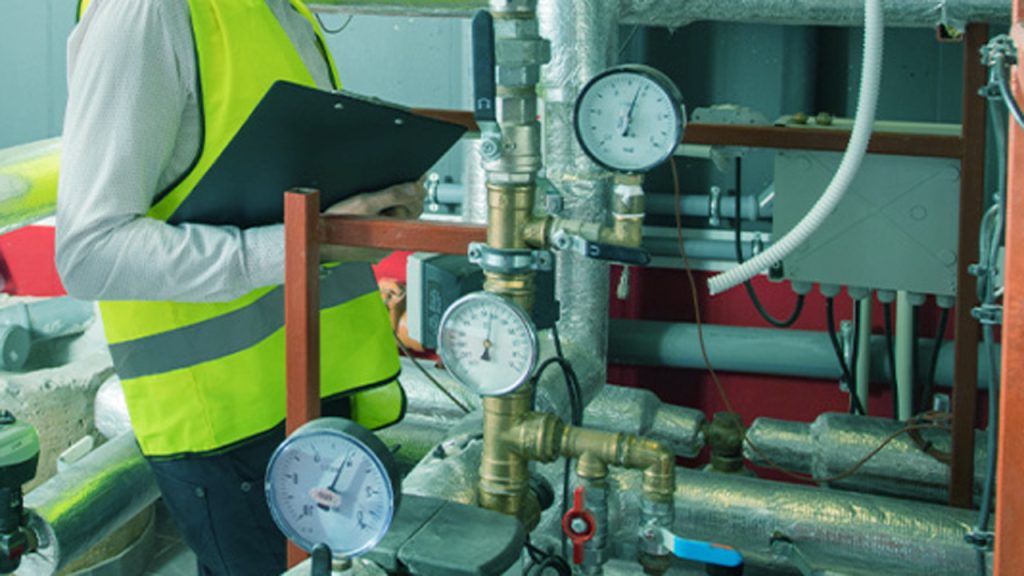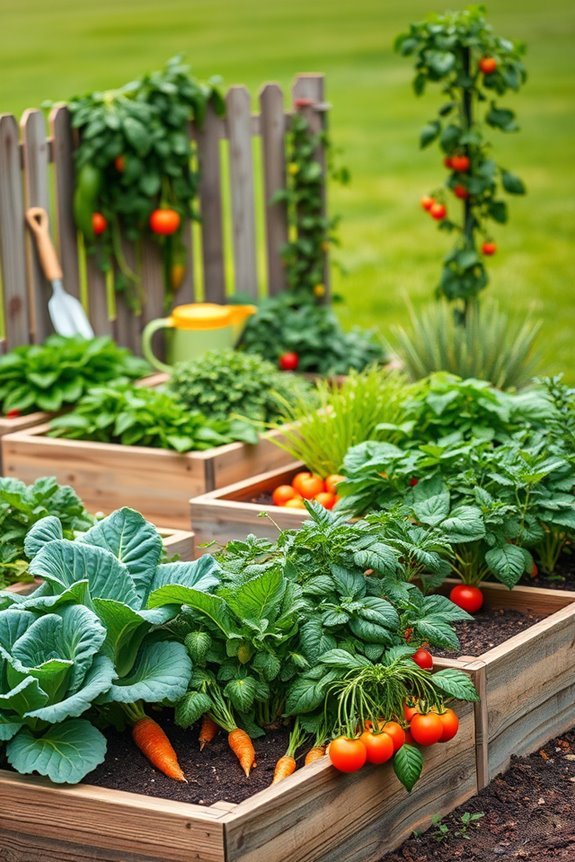What Does a Plumber do on Daily Basis? Inside the Life of a Plumbing Pro
Plumbers are skilled professionals who handle a wide range of tasks to ensure the smooth operation of our water systems. From installing and repairing water systems to fixing toilets and unclogging drains, their responsibilities are vast and varied. Plumbers are trained to diagnose and solve complex plumbing issues, making them indispensable in maintaining the functionality of our homes and businesses.

Photo by plumber.com.au
In addition to their technical expertise, plumbers also play a crucial role in preventing future problems. They offer expert advice on how to maintain plumbing systems and ensure their longevity. By addressing potential issues early on, plumbers save homeowners from expensive repairs and inconvenience in the long run.
Collaboration is also a key aspect of a plumber’s daily routine. They often work in teams or alongside contractors to integrate plumbing systems seamlessly into construction projects. This ensures that the plumbing infrastructure is properly installed and meets all necessary requirements. By working closely with other professionals, plumbers contribute to the overall success of a project and help avoid future complications.
Plumbers are problem solvers by nature, and their attention to detail is evident in every task they undertake. Whether it’s troubleshooting a mysterious leak or installing new fixtures, their meticulous approach ensures that the job is done right the first time.
Their expertise extends beyond the basics, allowing them to tackle even the most complex plumbing challenges with confidence and precision.
Tools and equipment used by plumbers
Plumbers rely on a variety of tools and equipment to carry out their daily tasks efficiently. These tools not only enable them to diagnose and fix bathroom plumbing issues efficiently but also contribute to their overall productivity, ensuring a smoother and more effective plumbing process. Let’s take a look at some of the essential tools that every plumber should have in their arsenal.
Pipe wrench
This versatile tool is a plumber’s best friend. It is used to grip and turn pipes, fittings, and other plumbing components. Pipe wrenches come in various sizes to accommodate different pipe diameters, ensuring a secure grip without damaging the surface.
Plunger
A plunger is a basic yet highly effective tool for unclogging drains and toilets. It creates suction to dislodge blockages and restore the proper flow of water. Plumbers often carry plungers of various sizes to tackle different types of clogs.
Pipe cutter
As the name suggests, a pipe cutter is used to cut pipes cleanly and accurately. It consists of a sharp cutting wheel that scores the surface of the pipe, followed by a tightening mechanism that gradually cuts through the material. Pipe cutters are essential for installing new pipes or replacing damaged ones.
Auger
Also known as a drain snake, an auger is used to remove stubborn clogs that cannot be cleared with a plunger. It consists of a long, flexible cable with a coiled end that can navigate through pipes and break up blockages. Augers come in different lengths and sizes to accommodate various pipe configurations.
Leak detection equipment
Plumbers use specialized equipment to identify and locate leaks in pipes and plumbing systems. This includes tools such as leak detectors, thermal imaging cameras, and moisture meters. By accurately pinpointing the source of a leak, plumbers can minimize damage and expedite repairs.
These are just a few examples of the many tools that plumbers use on a daily basis. Each tool serves a specific purpose and contributes to the successful completion of plumbing tasks. Without these essential tools, plumbers would not be able to carry out their responsibilities effectively.
Common plumbing issues and how plumbers address them
Plumbing issues can range from minor annoyances to major emergencies, and plumbers are the go-to professionals for addressing these problems. Let’s explore some of the most common plumbing issues that homeowners encounter and how plumbers tackle them.
Leaky pipes
Leaky pipes are a common plumbing problem that can cause significant damage if not addressed promptly. Plumbers use various techniques to identify and repair leaks, such as pressure testing, visual inspection, and the use of specialized equipment. Once the source of the leak is identified, plumbers will either repair the damaged section of the pipe or replace it entirely.
Clogged drains
Clogged drains are another frequent plumbing issue that can disrupt the flow of water in sinks, showers, and toilets. Plumbers use a combination of tools, including plungers and drain snakes, to remove blockages and restore proper drainage. In more severe cases, they may need to disassemble and clean the pipes to remove stubborn clogs.
Running toilets
A running toilet can waste a significant amount of water and lead to higher utility bills. Plumbers can diagnose the cause of a running toilet and recommend the appropriate repairs. This may involve replacing faulty components such as the flapper valve, fill valve, or flush handle.
Low water pressure
If you’re experiencing low water pressure in your home, a plumber can help identify the underlying cause. Common culprits include clogged pipes, sediment buildup, or faulty pressure regulators. Plumbers will troubleshoot the issue and take the necessary steps to restore adequate water pressure.
Water heater problems
Plumbers are well-versed in diagnosing and repairing water heater issues. Whether it’s a lack of hot water, strange noises, or leaks, they have the expertise to identify the problem and recommend the appropriate solution. This may involve repairing or replacing faulty components, flushing the tank to remove sediment, or performing routine maintenance.
These are just a few examples of the plumbing issues that plumbers encounter on a regular basis. No matter the problem, their expertise and specialized knowledge allow them to provide effective solutions and restore the functionality of your plumbing system.
Importance of plumbing maintenance
When it comes to plumbing, prevention is key. Regular maintenance plays a vital role in preventing costly repairs and ensuring the longevity of your plumbing system. Plumbers recommend the following maintenance tasks to keep your plumbing in top shape.
Inspect for leaks: Regularly check for leaks in faucets, toilets, and pipes. Even small leaks can waste a significant amount of water over time and lead to extensive damage.
Clear drains: Avoid pouring grease, food scraps, and other debris down the drain. Use drain covers to catch hair and other particles that can cause clogs. Regularly flush drains with hot water to keep them clear.
Test water pressure: Low water pressure can indicate underlying issues such as clogged pipes or faulty pressure regulators. Test the water pressure periodically and consult a plumber if you notice any significant changes.
Maintain water heaters: Follow the manufacturer’s recommendations for maintaining your water heater. This may include flushing the tank, checking the pressure relief valve, and inspecting the anode rod.
Winterize pipes: In colder climates, it’s important to protect your pipes from freezing. Insulate exposed pipes and disconnect outdoor hoses before winter arrives. If you’re going on vacation during the winter months, consider shutting off the main water supply and draining the pipes to prevent freezing.
By incorporating these maintenance tasks into your routine, you can minimize the risk of plumbing issues and ensure the continued functionality of your system. If you do encounter a problem, don’t hesitate to call a professional plumber. They have the expertise to address the issue effectively and prevent further damage.
Plumbing certifications and qualifications
Plumbers undergo rigorous training and certification processes to ensure they have the necessary skills and knowledge to perform their job effectively. Let’s take a closer look at the certifications and qualifications that plumbers acquire in their career.
Apprenticeship
Many plumbers begin their careers by completing an apprenticeship program. These programs typically last between four and five years and combine on-the-job training with classroom instruction. Apprentices work under the supervision of experienced plumbers and gradually gain the skills and knowledge needed to become licensed professionals.
Journeyman license
After completing an apprenticeship program, plumbers can apply for a journeyman license. This license allows them to work independently and perform a wide range of plumbing tasks. To obtain a journeyman license, plumbers must pass a licensing exam that tests their knowledge of plumbing codes, safety protocols, and industry best practices.
Master plumber license
A master plumber license is the highest level of certification a plumber can achieve. To obtain this license, plumbers must demonstrate several years of experience as a journeyman plumber and pass a rigorous examination. Master plumbers have the authority to oversee large plumbing projects, train apprentices, and provide expert advice on complex plumbing issues.
In addition to these certifications, plumbers often pursue continuing education to stay up-to-date with the latest industry trends and advancements. This ongoing learning ensures that plumbers can provide the highest level of service to their clients and adapt to evolving plumbing technologies.
When hiring a plumber, it’s important to verify their certifications and qualifications. Look for plumbers who are licensed, insured, and have a track record of satisfied customers. By choosing a qualified professional, you can have peace of mind knowing that your plumbing needs will be handled by a skilled and knowledgeable expert.
Tips for hiring a professional plumber
When faced with a plumbing issue, it’s crucial to hire a professional plumber who can effectively address the problem. Here are some tips to help you find the right plumber for your needs.
Research and gather recommendations: Start by researching plumbers in your area and asking for recommendations from friends, family, or neighbors. Look for plumbers who have positive reviews and a good reputation in the community.
Check for licensing and insurance: Ensure that the plumber you hire is licensed and insured. This provides protection for both you and the plumber in case of any accidents or damages during the job. Ask for proof of insurance and licensing before hiring.
Request references: Don’t hesitate to ask for references from past clients. Contact these references to inquire about the plumber’s professionalism, quality of work, and overall satisfaction. This will give you a better idea of what to expect from the plumber.
Obtain multiple quotes: To get a fair price for your plumbing job, obtain quotes from multiple plumbers. Compare the quotes and consider the overall value, not just the price. Keep in mind that the cheapest option may not always be the best choice.
Ask about guarantees and warranties: Inquire about any guarantees or warranties offered by the plumber. A reputable plumber should stand behind their work and be willing to address any issues that arise after the job is completed.
Communication and responsiveness: Pay attention to how the plumber communicates with you. Are they responsive to your calls or emails? Do they take the time to answer your questions? Good communication is essential for a successful working relationship.
Trust your instincts: Trust your gut feeling when choosing a plumber. If something doesn’t feel right or if you have any doubts, it’s better to continue your search and find a plumber you feel comfortable working with.
By following these tips, you can hire a professional plumber who will provide quality workmanship and exceptional service. Remember, investing in a reputable plumber will save you time, money, and unnecessary stress in the long run.
DIY plumbing tips and when to call a plumber
While some plumbing issues may be resolved through DIY methods, there are situations where it’s best to call in a professional plumber. Here are some DIY tips for minor plumbing problems and guidelines for when to seek professional help.
Clogged drains
For minor clogs, a plunger or a drain snake can often do the trick. However, if the clog persists or if you’re dealing with multiple clogged drains, it’s best to call a plumber. They have the expertise and tools to remove stubborn blockages without causing further damage.
Leaky faucets
A leaky faucet can be fixed with basic DIY skills. Start by turning off the water supply and disassembling the faucet to identify the faulty component. Most often, a worn-out washer or O-ring is the culprit. Replace the damaged part and reassemble the faucet. If the leak persists or if you’re unsure of the repair process, consult a plumber.
Running toilets
A running toilet can waste a significant amount of water. To diagnose the issue, remove the tank lid and check the flapper valve, fill valve, and flush handle for any signs of damage or misalignment. Adjust or replace the faulty components as needed. If the problem persists, it’s best to call a plumber to avoid further water wastage.
Minor pipe leaks
If you notice a small pipe leak, you can try using a pipe repair clamp or epoxy putty to temporarily seal the leak. These are temporary solutions, and it’s important to call a plumber to fix the leak properly. A plumber will assess the extent of the damage and repair or replace the affected section of the pipe.
Water heater issues
DIY maintenance tasks such as flushing the tank or replacing the pressure relief valve can be done by homeowners with basic plumbing knowledge. If you’re experiencing more complex issues such as no hot water or leaks, it’s best to call a plumber. Water heaters involve electrical and gas components, which require professional expertise to handle safely.
Major plumbing projects
For major plumbing projects such as bathroom renovations or installing a new plumbing system, it’s essential to consult a professional plumber. They have the knowledge and experience to ensure that the project is completed safely and in compliance with local building codes.
DIY plumbing jobs should only be attempted if you have the necessary skills and knowledge. If in doubt, it’s always better to call a plumber and avoid potential damage or safety hazards.
Plumbing industry trends and innovations
The plumbing industry is constantly evolving, with new technologies and innovations shaping the way plumbers work. Here are some trends that are currently shaping the plumbing industry.
Smart plumbing systems
Smart technology has made its way into plumbing systems, offering homeowners increased control and convenience. Smart faucets, toilets, and water heaters allow for remote operation and monitoring through smartphone apps. These systems can help conserve water, detect leaks, and provide data on water usage.
Water-efficient fixtures
With a growing focus on sustainability, water-efficient fixtures have become increasingly popular. Low-flow toilets, faucets, and showerheads are designed to reduce water consumption without compromising performance. Plumbers play a crucial role in installing and maintaining these fixtures to help homeowners save water and reduce their environmental impact.
Green plumbing
Green plumbing is a revolutionary concept that is transforming the way we think about our plumbing systems. Gone are the days of wasteful practices and harmful chemicals polluting our water supply. With green plumbing, we can enjoy a more sustainable and environmentally friendly approach to plumbing.
The use of energy-efficient fixtures and appliances, such as low-flow toilets and water-saving showerheads, allows us to conserve water without sacrificing comfort or functionality. Green plumbing also emphasizes the use of non-toxic materials and eco-friendly cleaning products, ensuring that our water remains clean and safe for consumption.
Conclusion
Plumbers are highly skilled professionals who play a crucial role in maintaining the functionality of our water systems. Their daily tasks involve a wide range of responsibilities, from installing and repairing plumbing systems to unclogging drains and fixing toilets. Plumbers also offer expert advice on maintenance to prevent future problems and save homeowners from costly repairs.
Collaboration with other professionals is essential as plumbers work closely with teams and contractors to ensure the seamless integration of plumbing systems in construction projects. Their meticulous approach and attention to detail enable them to tackle even the most complex plumbing challenges with confidence and precision.
Plumbers rely on a variety of tools and equipment, such as pipe wrenches, plungers, pipe cutters, augers, and leak detection equipment, to carry out their tasks effectively.
They address common plumbing issues like leaky pipes, clogged drains, running toilets, low water pressure, and water heater problems with expertise and provide effective solutions. Overall, plumbers are very essential for the proper functioning and maintenance of our water systems.




